Australian Army to take lead on terror attacks from NSW Police Force under Malcolm Turnbull overhaul
UPDATE: Malcolm Turnbull said he wants to make it easier for Australia’s military to help police deal with terrorist attacks after unveiling a raft of changes.
NSW
Don't miss out on the headlines from NSW. Followed categories will be added to My News.
- Secret proposal: Army may fight terror on home soil
- New laws to protect police if they shoot-to-kill terrorists
AUSTRALIA’S military elite will soon be able to take the lead in attacks on terrorists in the case of extremist strikes on our shores.
Instead of leaving the battle to the NSW Police Force, new powers will strengthen an Australian Defence Force “call-out” provision to allow the military to use deadly force against terrorists on domestic soil.
The military might of Australia’s second commando regiment was on display in Holsworthy this morning - ready to be called on in the event of a terrorist attack.
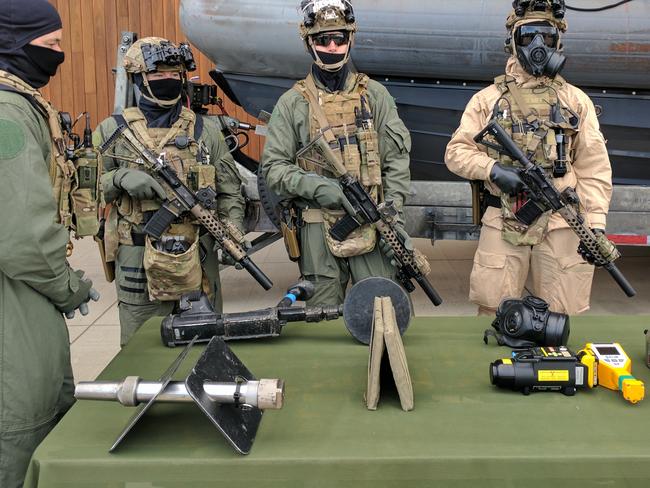
The men, whose identities must be suppressed, showed off their latest toys including silenced sniper rifles, tactical grenades and a militarised Rigid Holt Inflatable Boat - fitted with machine guns and a beefed up engine.
The men are among the best trained soldiers in the country and from today their skills can be called on by State and Federal police in times of crisis.
Prime Minister Malcolm Turnbull said he wants to make it easier for Australia’s military to help police deal with terrorist attacks.
The prime minister unveiled a raft of changes this morning, including having special forces provide specialised training to local police officers. “Our enemies are agile and innovative. We have to stay ahead of them,” Mr Turnbull told reporters at the Holsworthy Barracks in Sydney’s southwest.
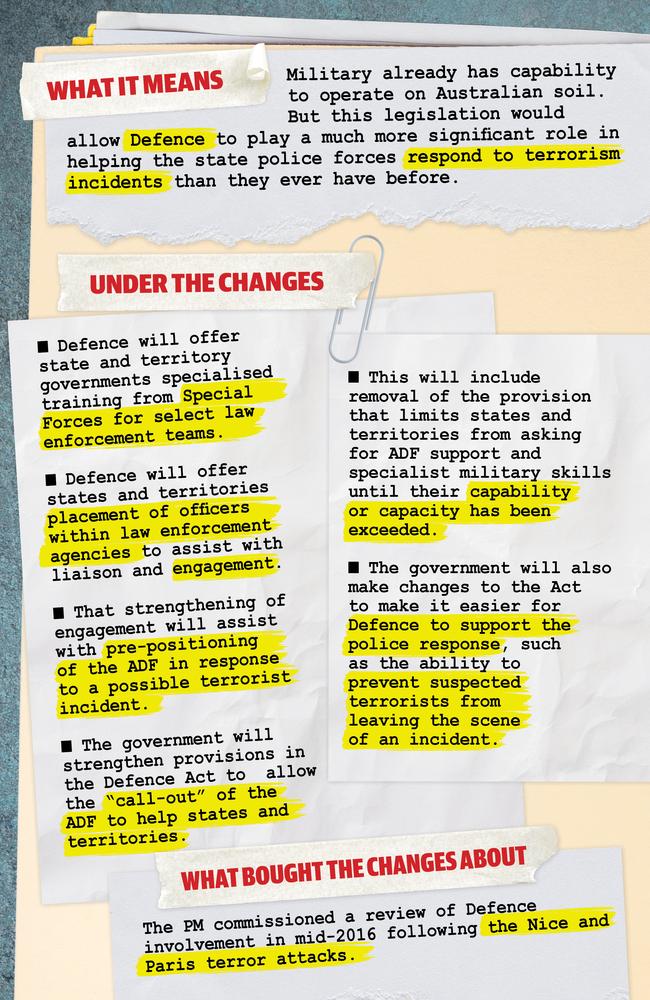
Defence will offer soldiers for embedding within police forces to bolster engagement between authorities.
“We have to ensure that every resource we have - legislative, military, police, intelligence, security - is always at the highest standard and able to be brought to bear to keep Australians safe,” Mr Turnbull said.
Justice Minister Michael Keenan says the changes build on an already strong relationship between the military and police.
“In 2005 we never imagined Australia would be under the current terrorism threat that it is,” he told ABC radio.
“We need to make sure that the ‘call out’ powers are appropriate for the current circumstances.” Local police will still take the lead in responding to terrorist incidents.
“There would only be limited circumstances in which the niche military capabilities that we have would be required,” Mr Keenan said.
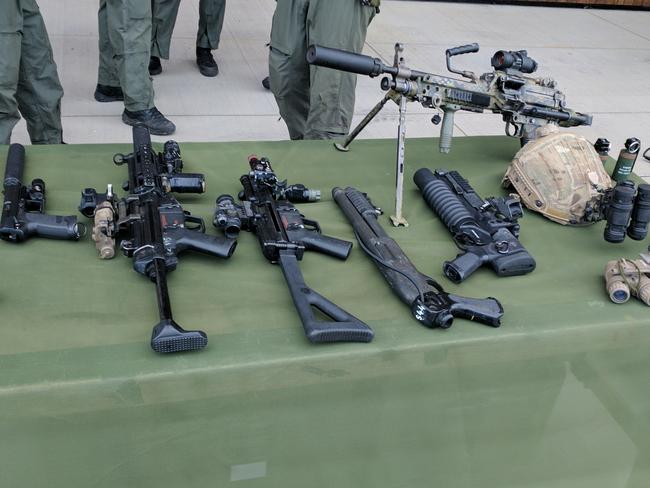
The Turnbull government’s moves to expand the ADF’s role under the Defence Act means the military can take over counter-terror responses from local police, who were recently slammed as ill-equipped for their response to domestic incidents such as the Lindt cafe siege
“The overhaul will make it easier for Defence to work together with federal, state and territory police in the event of a terrorist incident,” Prime Minister Malcolm Turnbull said.
“State and territory police forces remain the best first response to terrorist incidents immediately after an attack starts.
“But Defence can offer more support to states and territories to enhance their capabilities and increase their understanding of Defence’s unique capabilities to ensure a comprehensive response to potential terrorist attacks.”
The strengthening of the Defence Act comes in the wake of bloody global attacks in which Islamic State-inspired extremists have struck in densely populated areas, such as concert halls or market places, sometimes killing up to 150 people at a time.
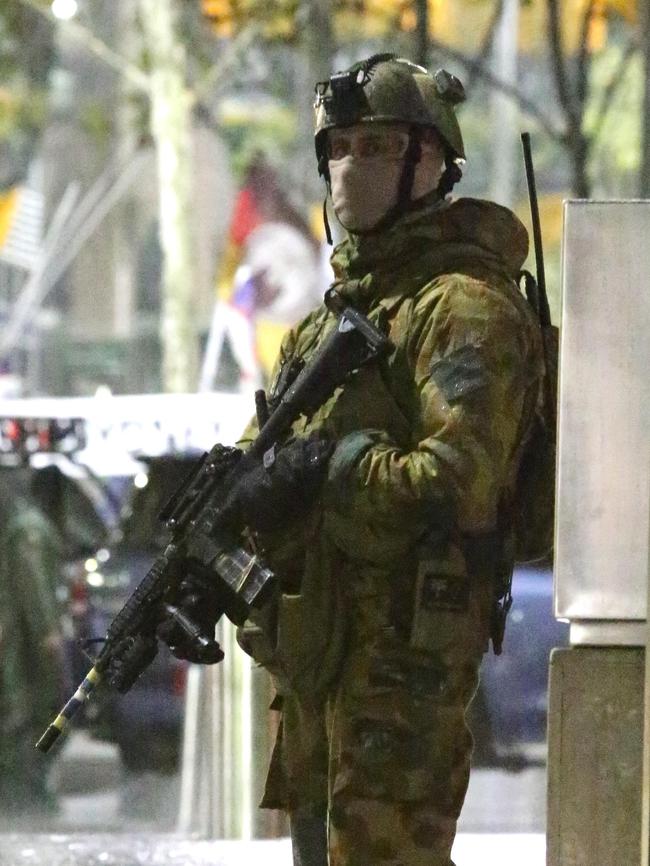
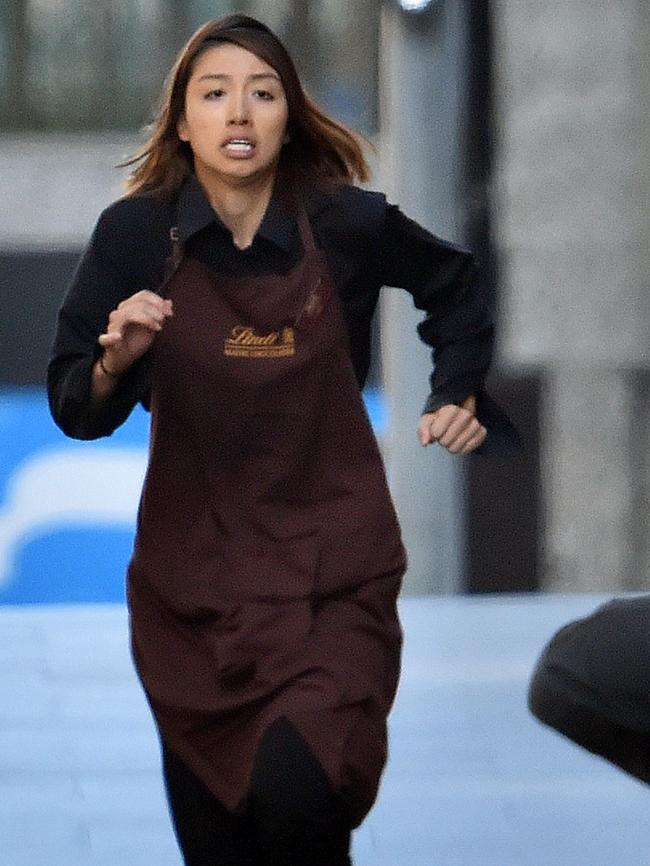
Also significant in shaping the new rules was the Martin Place’s Lindt cafe siege in late 2014. There were calls for the government to change the law in the wake of the deadly Sydney siege so that the military could have stepped in to rescue hostages, either by storming the cafe or using their highly trained snipers to kill the radicalised madman Man Haron Monis.
The Turnbull government insists the decision to strengthen the Defence Act is not in response to the Lindt cafe siege, but rather is a result of a separate review into the national counter-terrorism response initiated in 2016.
However, Mr Turnbull will strengthen the Defence Act Part IIIAAA to remove some of the constraints in the “call out” provisions that have prevented the ADF from helping states and territories respond to terror threats.
One provision currently stops police from asking for Defence support and specialist military skills until their “capabilities have been exceeded”.
The act will also be changed so that Defence can help with the NSW Police response on the ground, for example, containing suspected terrorists at the scene of the crime.



